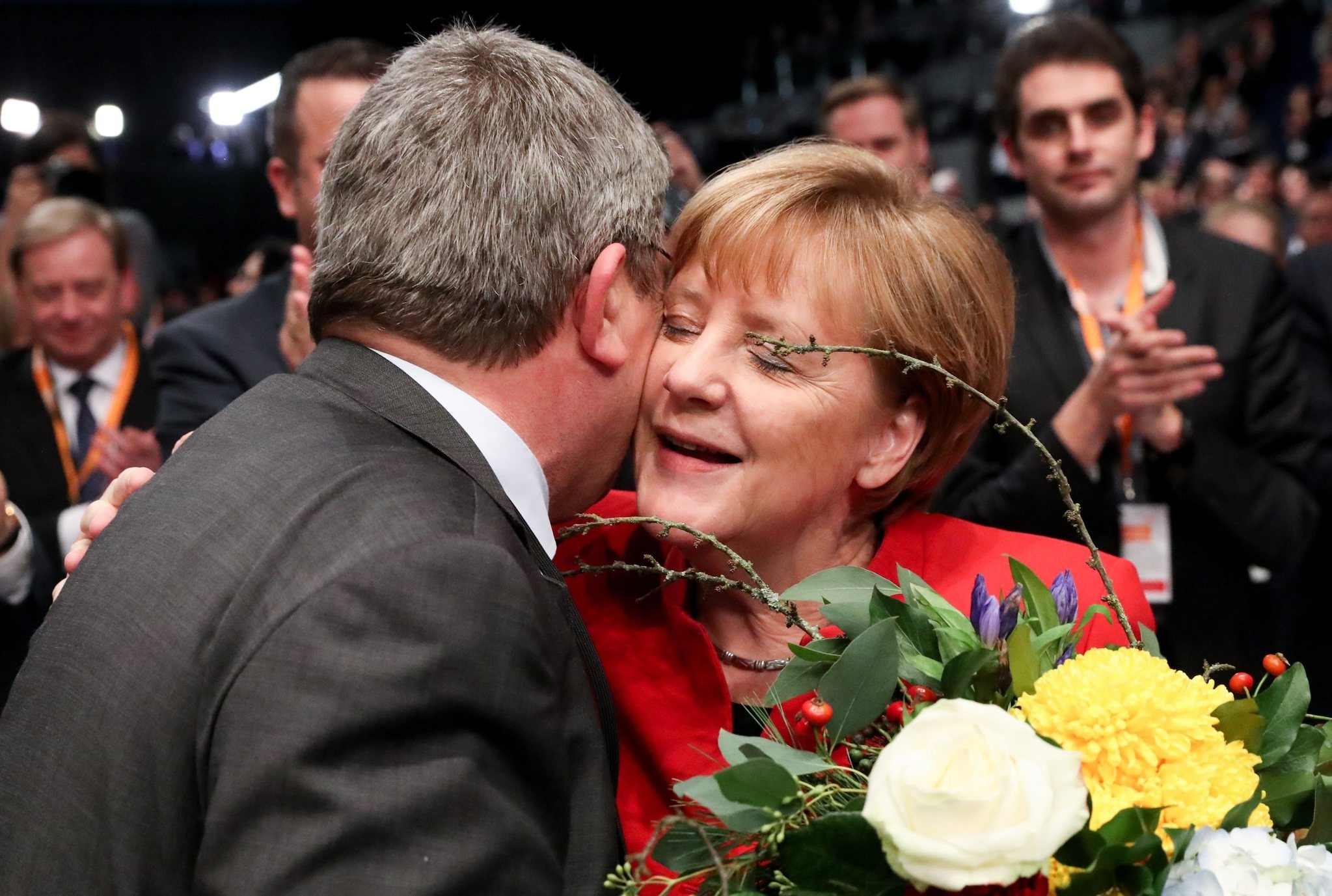"A situation like the one in the late summer of 2015 cannot, should not and must not be repeated," Merkel told delegates.
While Merkel insists that Germany will continue to take in people who genuinely need of protection, her government has moved to toughen asylum rules and declare several countries "safe" — meaning people from there can't expect to get refuge.
Merkel was also a driving force behind an agreement between the European Union and Turkey in March to stem the flow of migrants.
Polls show a solid lead for the conservatives, although their support is still short of the 41.5 percent they won in Germany's 2013 election. They face new competition from the upstart nationalist Alternative for Germany party, which has thrived by attacking Merkel's migrant policies.
"The 2017 election will be more difficult than any election before, at least since German reunification," Merkel said, citing the "strong polarization of our society."
Merkel told delegates that "parallel societies" won't be tolerated and advocated banning the wearing of full-face veils used by some Muslim women where that's possible. But she also hit out at anti-migrant and anti-government protesters who chant "We are the people!" or post hate messages on social media.
"Who the people are ... is something that we will all determine, not just a few, however loud they may be," she declared.
The EU's longest-serving head of government has often said her aim is for Europe to emerge stronger from crises such as the debt troubles that afflicted the common euro currency.
Merkel said she still believes in that — but "we must in this situation ... first do everything so that Europe doesn't emerge even weaker from the crises than when it went in."
That "sounds modest, but let's not deceive ourselves, it is not," Merkel said, citing conservative icon and ex-Chancellor Helmut Kohl's maxim that European stability shouldn't be taken for granted.
Aside from unhappiness about her migrant policy, some party members are grumbling about what's perceived as a drift to the left during her 11 years as chancellor.
"We have thrown a lot of Christian Democratic principles overboard," said Eugen Abler, a delegate from the southwestern state of Baden-Wuerttemberg, whose complaints included what he called "the downplaying of Islamization."
"The result: We are winning few voters on the left and we are losing a lot on the right," he added.
Merkel said that tough times demand tough decisions.
"I have asked a lot of you because the times have asked a lot of us — I am well aware of that," she told her party. "And I cannot promise you that there will be fewer demands in the future, because we must do what the times demand of us."
Still, she stressed Tuesday that the conservatives will rule out tax increases for the next four years.




